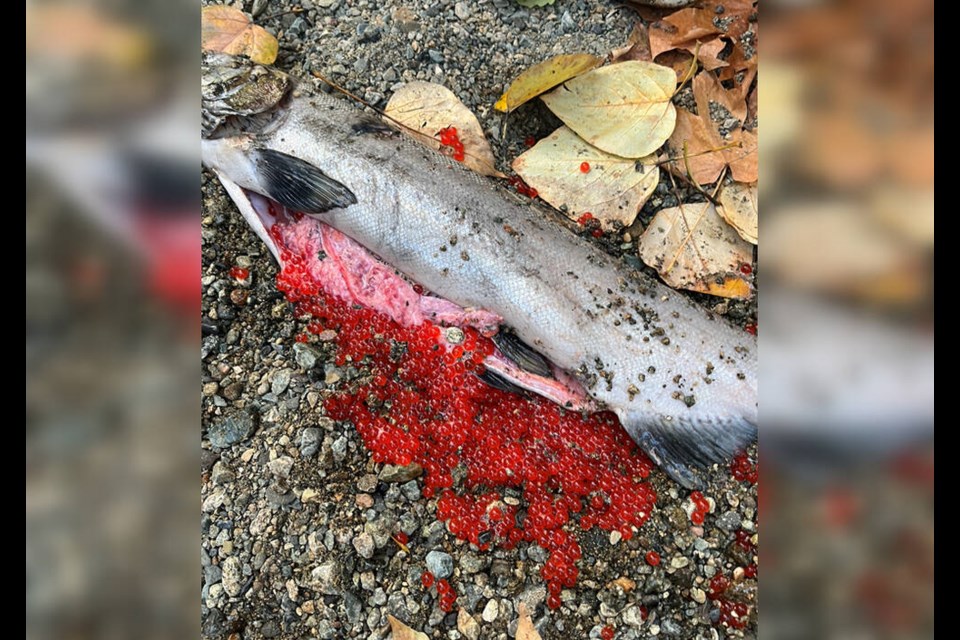Dear Editor,
I’d like to thank the North Shore News for the front page article bringing the dangers 6PPD-quinone poses to our fish to public attention.
The editorial of Nov. 14 “Toxic Approach”, is also appreciated, but stops short. It leaves the reader feeling helpless and powerless. It correctly states that stormwater carries 6PPD-quinone from our roads into our creeks, and that road runoff is a “toxic soup” (I’ll add, also containing hydrocarbons, salt, sludge and other toxins) into the naturalized creek environment. However, it fails to mention that we do know what to do about this toxic soup. We need to control road runoff and treat it.
Obviously, we can’t collect and actively treat all runoff, but there are passive means to do it. Settling sumps are a small step forward. A bigger and better step are rain gardens, which slow the water, filter it and remove many toxins through interactions with the plants and soil. There are early-stage studies that show that even 6PPD-quinone is reduced by passing runoff through a rain garden.
Readers are not helpless. They can assist by controlling runoff from their roofs and driveways so that instead of heading straight for the storm sewers and a creek it passes into vegetated areas first.
The municipalities can do more by installing rain gardens on public streets (The City of North Vancouver and some private business properties have done this), but in many cases new private construction is not required to do it and municipal construction isn’t either.
It’s time for members of the public to insist we do more. We know what the problem is, and we know what the solutions are. We don’t have to wait for somebody else to something. We have the power, now.
Paul Lhotka
North Shore Streamkeepers volunteer
What are your thoughts? Send us a letter via email by clicking here or post a comment below.




